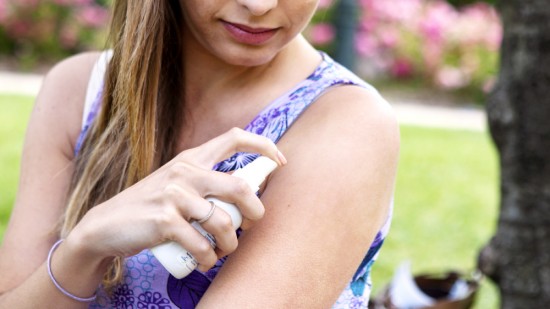If you spend time outdoors, you are more exposed to bugs and insects, which means you might be exposed to more stings and bites. Some people can have allergic reactions to insect bites, so it’s very important to know the signs and symptoms and how to treat them.

If you have an allergic reaction to insect bites or stings, you can always come to any of our Houston and Austin ERs for 24 hour emergency care for quality, compassionate care.
Different Types of Reactions
The insects that trigger allergies the most are bees, wasps, yellow jackets, hornets, and fire ants. If you get stung by one of these insects, you will have a reaction, but not all people have an allergic reaction. There are three different types of reactions: normal, localized, and allergic. A normal reaction consists of pain, swelling, and redness around the sting site. A localized reaction will consist of swelling that extends beyond the sting site. It usually looks bad, but is no worse than a normal reaction. An allergic reaction consists of the following symptoms and requires immediate medical attention:
- Difficulty breathing
- Hives that look like a red, itchy rash
- Swelling of the face, throat, or mouth
- Wheezing or difficulty swallowing
- Anxiety
- Accelerated pulse
- Dizziness
- Sharp drop in blood pressure
Treating a Normal or Localized Reaction
If you get stung by a bee and have a normal or localized reaction, remove the stinger within 30 seconds to avoid receiving more venom. Remove the stinger by gently scraping the area with a stiff-edged object like a credit card or fingernail.

Avoid squeezing the stinger so as not to release more venom into the skin. Wash the area with soap and water and apply an antiseptic and then an ointment like hydrocortisone or calamine lotion. Next, cover the area with a dry, sterile bandage.
Treating an Allergic Reaction
If you exhibit any of the above symptoms, it is imperative to seek immediate medical attention. Even though severe allergic reactions are not that common, if left untreated, you could go into shock, cardiac arrest, or lose consciousness within 10 minutes.

When you are treated for an allergic reaction, most likely you will be given epinephrine, which is adrenaline. This injection will stop the severe allergic reaction from getting worse. In some cases, you might be given IV fluids or oxygen depending on the severity of the reaction. If you have had previous allergic reactions, you should always carry epinephrine, or an EpiPen®, with you at all times.
Stay safe this summer by protecting yourself against insect bites and stings. Always wear socks and shoes when outdoors, and avoid wearing perfumes and brightly colored clothing, which tends to attract insects. Avoid wasp and hornets’ nests and use insect repellent. If you do get stung by an insect and think you are having an allergic reaction, come to any Neighbors Emergency Center for treatment. We are open 24/7 and have Board Certified ER physicians on staff to treat you quickly with care and compassion.
Neighbors Emergency Center offers 24 hour emergency care in Houston and Austin 365 days a year, and our board certified emergency physicians can treat all medical emergencies. We know you’re time is important, so we will treat you quickly and effectively so you can get back to doing what you love. If you are looking for a quality emergency room with little to no wait time, come to Neighbors Emergency Center.

